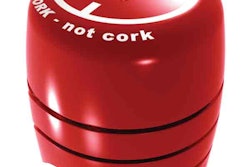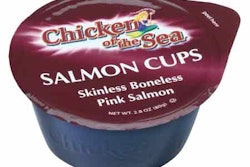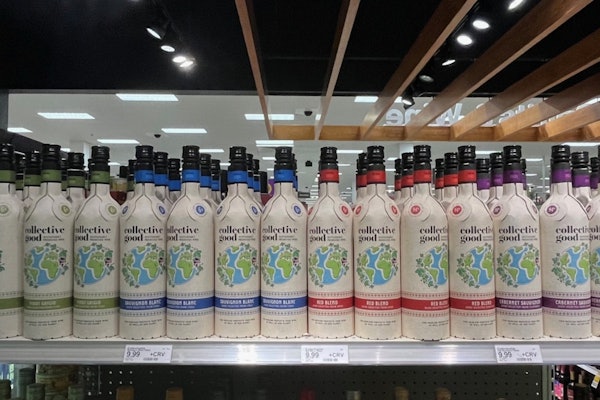These new requirements involve amendments to the Federal Food, Drug and Cosmetic Act, so the law explicitly makes violations of the labeling or reporting requirements into violations of the Act, subjecting the violator to all of FDA’s enforcement remedies.
Both OTC drugs and dietary supplements are regulated the way they are because they are generally safe for consumers to ingest without close medical supervision, provided label instructions are followed. There are exceptions, of course, discussed below. This law places new burdens on makers of both types of products as a way to tighten up the controls to which they are subject.
By including both OTC drugs—including aspirin, ibuprofen, cold remedies and antacids, as well as dietary supplements—including vitamins, minerals, and herbal products, Congress signals its concern that large numbers of serious health consequences from both types of products are not currently reaching the public health radar screen, or are not reaching it quickly enough. It also implicitly overrides FDA’s pending proposal to have OTC drugs feature the MedWatch phone number on their labels.
This law, the Dietary Supplement and Nonprescription Drug Consumer Protection Act, is designed to increase reporting of serious product problems. To help information flow to the makers, the law calls for the labels of these products to feature a U.S. address or phone number to which reports of serious adverse events can be directed, and requires the companies to then turn around and report the events to FDA.
How exactly the law requires you to list the responsible party on the label is not clear, because while the plain implication of the law is that the label statement should be something above and beyond the traditional requirement of listing the name and address of the manufacturer, packer or distributor, it doesn’t say that explicitly. Clearly, products with no contact information in the U.S. will have to add one. FDA is required to issue guidance by august on what information needs to be reported, so maybe it will include guidance on the label statement as well.
“Adverse event” is defined as a “health-related event associated with the use of [the product] that is adverse,” (I could have come up with that one), and a “serious adverse event” is defined as one that results in one of the following: a life-threatening experience, in-patient hospitalization, persistent or significant disability or incapacity, or a congenital anomaly or birth defect. The law says it’s also a serious adverse event if someone’s reasonable medical judgment indicates that medical or surgical intervention is required to avoid any of those listed outcomes.
The reporting obligation is not without burdens. The drug or dietary supplement’s manufacturer, packer or distributor is required to make a report about the serious adverse event to FDA within 15 days of receiving it through the label-provided contact mechanism, and to make follow-up reports of any further information they receive on the reported event for up to a year after the initial report. They must keep records of these reports for 6 years and make them available to FDA inspectors as part of agency inspections. These reports to FDA are required to be made using the existing MedWatch reporting form, along with a copy of the product’s retail package label.
The entity that must make the reports is called the “responsible person,” defined by the new law as the manufacturer, packer, or distributor “whose name appears on the label” of an OTC drug or dietary supplement marketed in the US. (Remember that the federal Food, Drug and Cosmetic Act has long required that the name and address of just one of those—manufacturer, packer or distributor—appear on drug and dietary supplement labels.) The law contains a way for retailers to become exempt from the reporting obligation: If you’re a retailer and it’s your name that appears on the label as the distributor, of, say, a house branded package, you can comply with the law by making an agreement with the manufacturer or packer of the product that the address or telephone number will direct all adverse event reports for that product to the manufacturer or packer.
The law contains some protections for companies from civil lawsuits that might arise from the information in the reports. Submission of any report required by the law “shall not be construed as an admission” that the product caused or contributed to the adverse event. Also, reports will be considered “safety reports” and the responsible person can, says the law, include a statement that says the company denies that the report or records are an admission that the product “caused or contributed to” the adverse event, and that statement would need to be made part of any public disclosure by federal officials of any part of the report. Personally identifiable information in any of the records would also be redacted.
The law also contains another helpful protection for the affected industry. There are explicit preemption provisions that prohibit state or local governments from making any requirement relating to mandatory adverse event reporting that is in addition to, or different from, this new federal system.
The primary trade association of OTC drug makers, the Consumer Healthcare Products Association, has long supported the idea of enhancing such reporting, noting that “In addition to bolstering public confidence, the establishment of a mandatory system also will benefit manufacturers by standardizing the scope and extent of reporting to FDA.” (Some OTC drugs, cleared via an FDA New Drug Application, already have similar reporting obligations, so the law will put all OTCs on a similar footing.)
Representatives of the dietary supplement industry actually support the passage of these new requirements, on the theory that they could enhance the reliability of their products in the minds of consumers.
Supplement industry representatives know better than anyone that their product category is a mixed bag. There are plenty of supplements containing a vitamin, mineral, or herbal substance that truly does aid health or the body’s structure or function in some way. There are also some that are, um, less reliable, making unsubstantiated claims of disease prevention, weight loss, or other effects. In fact, in early January, when many people just got done resolving to lose weight, the Federal Trade Commission (which regulates supplement advertising) announced a total of $25 million in fines against four marketers of weight-loss products for making false claims of effectiveness.
You can expect some packagers will add the reporting information to their labels in the next few months, but all OTC drugs and dietary supplements will need the label statement, and the reporting system beginning December 22. Watch for FDA guidance on compliance, too, in august if not before.
Eric can be reached at [email protected], and visit his firm’s Web site at www.ericfgreenbergpc.com.

























